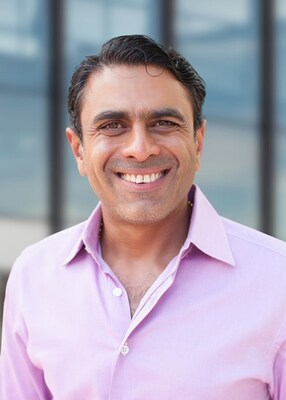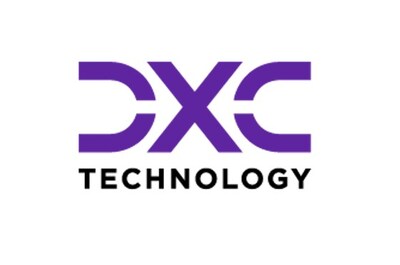The FSHD Society is deploying powerful AI technology to improve clinical trial design for facioscapulohumeral muscular dystrophy
Press Releases
Apr 21, 2022
The patient advocacy nonprofit is collaborating with BullFrogAI as growing numbers of biopharmas take aim at this genetic muscle disease
RANDOLPH, Mass., April 21, 2022 /PRNewswire-PRWeb/ — The FSHD Society announced that it is launching a collaboration involving the FSHD Clinical Trial Research Network (CTRN) and BullFrogAI, an innovator in artificial intelligence, to analyze the largest-yet natural history dataset collected from patients with facioscapulohumeral muscular dystrophy (FSHD). FSHD is a debilitating, genetic disease affecting an estimated 1 out of 8,000 people and causes life-long, progressive muscle weakness.
“We hope these studies will help with clinical trial design and patient stratification to accelerate clinical trials for our community,” said Jamshid Arjomand, PhD, chief science officer at the FSHD Society.
BullFrogAI will be using the bfLEAP™ Artificial Intelligence platform to analyse a large and multidimensional clinical dataset of FSHD collected by the FSHD CTRN in the NIH-funded Clinical Trial Readiness to Solve Barriers to Drug Development in FSHD (ReSolve; NCT03458832) study. The study enrolled 220 patients at 8 U.S. and 3 European CTRN sites and used multiple motor outcome instruments to track disease progression over 24 months, including an FSHD Functional Composite, the Motor Function Measure Domain 1, Reachable Workspace, and electrical impedance myography.
The AI analysis is aimed at assessing which outcome measures, or combination of measures, are most sensitive to changes associated with disease progression. Additionally, as FSHD is known to have variable rates of progression among individuals, the investigators hope to identify other clinical factors or medical conditions that correlate with different rates of progression. Individuals who have factors correlating with faster progression would be good candidates for including in a clinical trial, because they would be more likely to demonstrate whether an experimental therapy is able to slow disease progression.
Arjomand thanked the collaborators, saying, “We’re delighted to have been able to facilitate this project by bringing the CTRN’s ReSolve study with Bullfrog’s expertise in AI and machine learning to carry out a comprehensive analysis of these data.”
“This collaboration can set the stage for more efficient clinical trial design, and can serve as a model for collaborations with AI companies to evaluate large clinical trial preparedness data sets,” said Jeffrey Statland, M.D., co-director of the FSHD CTRN and professor of neurology at the University of Kansas Medical Center.
“BullFrogAI welcomes the opportunity to collaborate with the FSHD Society and the FSHD CTRN,” said Vin Singh, Founder and CEO of BullFrog AI. “We’re excited that the bfLEAP™ AI platform can contribute to the development of a drug for this devastating disease.”
About BullFrog AI
BullFrog AI is an innovator in artificial intelligence. Its proprietary bfLEAP™ analytics engine is derived from technology developed at the Johns Hopkins University Applied Physics Laboratory (APL) and is a powerful tool designed to analyze massive, complex, multi-factorial data sets. BullFrog AI’s technology is poised to revolutionize drug development, enabling researchers and clinicians to match therapies to patients, streamlining clinical trials, reducing development costs and accelerating R&D cycle time to drug approval and commercial launch. BullFrog AI has an exceptional team of life science industry leaders, AI technologists, scientists, physicians and advisors, all determined to help make BullFrog AI become a leader in precision medicine. For more information visit BullFrogAI at:
Website: http://www.bullfrogai.com
LinkedIn: https://www.linkedin.com/company/bullfrogai/
About the FSHD Clinical Trial Research Network (CTRN)
The Facioscapulohumeral Muscular Dystrophy Clinical Trial Research Network (FSHD CTRN) is a consortium of 18 academic research centers (12 in the United States, 5 in Europe, and 1 in the UK) with expertise in FSHD clinical research or in conducting neuromuscular clinical trials. CTRN co-directors are Rabi Tawil, MD, of the University of Rochester, and Jeffrey Statland, MD, of the University of Kansas Medical Center. The FSHD CTRN helps close gaps in trial readiness and also provides a network of sites with a centralized streamlined regulatory process, specific, common expertise in FSHD, and an engaged patient population ready to conduct efficient, high quality clinical trials.
About the FSHD Society
The FSHD Society is the world’s largest research-focused patient organization for facioscapulohumeral muscular dystrophy (FSHD), one of the most prevalent forms of muscular dystrophy. The Society has catalyzed major advancements and is accelerating the development of treatments and a cure to end the pain, disability, and suffering endured by one million people worldwide who live with FSHD. The FSHD Society has transformed the landscape for FSHD research and is committed to making sure that no one faces this disease alone. The Society offers a community of support, news, and information through its website at https://www.fshdsociety.org.
Media Contact
June Kinoshita, FSHD Society, 7813016649, june.kinoshita@fshdsociety.org
Todd McKnight, RedChip Companies, Inc., 800-733-2447, todd@redchip.com
SOURCE FSHD Society



